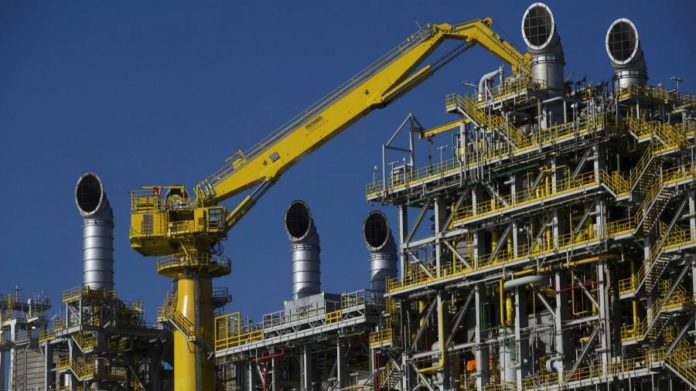Petrobras of Brazil, Latin America’s biggest oil producer, is to boost its capital expenditure to $68bn over the next five years, as the state-controlled group bets on its role as a low-cost hydrocarbon supplier in the energy transition.
The company, whose full name is Petróleo Brasileiro, announced the spending plan for 2022 to 2026 this week, with an almost one-quarter increase compared to its previous budget of $55bn for the period starting this year.
The largest part will be spent on oil exploration and production, with the greatest share going towards its lucrative “pre-salt” deep sea reserves. Among the biggest offshore discoveries this century, the company says its fields are cheaper to exploit and have lower carbon emissions per barrel.
“[Our focus is] to gain time in this race looking towards the 2050 horizon, when the use of fossil fuels could decrease in the world. We want to be an option. As long as there is a need, Petrobras will be [there] because of its efficiency and low carbon content,” Joaquim Silva e Luna, chief executive, told the Financial Times.
Although the overall spending plan is still below that envisaged before the start of the coronavirus pandemic, it points to how Petrobras believes its future lies in maximising production.
A number of large international rivals are grappling with pressure from shareholders and campaigners to abandon new drilling in the fight against climate change.
The wells in pre-salt areas are highly productive, meaning that “extractive activity has less carbon emissions per barrel than the average. Also, it is lighter oil that requires less carbon emissions to process,” said Francisco Monaldi, fellow in Latin American energy policy at Rice University’s Baker Institute.
Petrobras has a commitment to reduce its operating emissions by 25 per cent by the end of the decade. The company pointed to a pledge of $2.8bn for decarbonisation and other projects, a figure critics say is insufficient.
“If in today’s world matrix, you replace Petrobras oil with another, it will certainly have more emissions,” said Rodrigo Araujo Alves, chief financial officer.
The comments came as oil benchmarks and global stocks tumbled on Friday over fears about a new strain of coronavirus, believed to be behind a surge of Covid-19 cases in southern Africa.
After a 3.9 per cent drop on Friday, Petrobras’ São Paulo-listed preferred stock is down 1.5 per cent in 2021, still outperforming the wider Bovespa index which has shed 14 per cent.
A recent rally in crude prices has helped Petrobras generate rising profits and achieve a goal of bringing gross debt below $60bn ahead of schedule.
It marked a milestone in a turnround of the business, in which the state holds a roughly 37 per cent stake but just over half of voting rights.
Under previous governments Petrobras was rocked by a massive corruption scandal and pushed to the brink of bankruptcy, after fuel price controls resulted in tens of billions of dollars of losses.
With inflation in double digits ahead of elections next year, Brazilian president Jair Bolsonaro has taken aim at the company’s practice of moving diesel and gasoline prices in line with international market rates.
Silva e Luna insisted he would stick with the pricing policy despite political and public pressure, and said corporate governance rules prevented external meddling.
“We understand the political discussion, but we believe there is no room for interference,” he said. “On this point our investors can feel secure.”
A reserve army general with no previous experience in the oil and gas industry, Silva e Luna was appointed in February after his predecessor was dismissed by Bolsonaro in a dispute over fuel prices.
Additional reporting by Carolina Ingizza in São Paulo
Climate Capital


Where climate change meets business, markets and politics. Explore the FT’s coverage here.
Are you curious about the FT’s environmental sustainability commitments? Find out more about our science-based targets here
Credit: Source link















